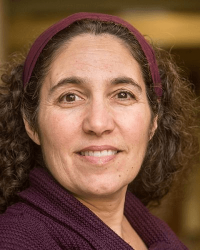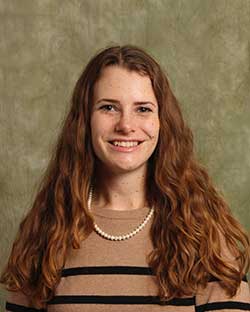I-GMAP is comprised of a core team of professional and academic staff.
Max Pensky
Co-Director & Professor of Philosophy

Email: mpensky@binghamton.edu | Website
Kerry Whigham
Co-Director & Associate Professor of Genocide and Mass Atrocity Prevention

Email: kwhigham@binghamton.edu| Website
IN MEMORIAM: JUNE 13, 1964 - MARCH 12, 2022
Nadia Rubaii
Founding Co-Director & Professor of Public Administration
Eric Wiebelhaus-Brahm
PhD, Professor of Genocide and Mass Atrocity Prevention

Eric Wiebelhaus-Brahm, PhD is a professor of genocide and mass atrocity prevention. He is the author of three books and over 40 articles and book chapters on transitional justice (TJ), human rights, and peacebuilding. Specifically, he is interested in evaluating the impact of justice and peacebuilding policy interventions, the political economy of TJ, and the role of diasporas in TJ processes. His newest book (with Elin Skaar & Jemima García-Godos) is Exploring Truth Commission Recommendations in a Comparative Perspective: Beyond Words (Intersentia Uitgevers NV, 2022). Current research projects examine truth commission engagement with marginalized groups, truth commission successor bodies, and donor funding for transitional justice. Prior to joining I-GMAP, he held positions at the University of Arkansas at Little Rock, Florida State University, DePaul University’s International Human Rights Law Institute, and the University of Nevada - Las Vegas. He has been a Visiting Professor at the University of Arkansas Clinton School of Public Service and the University of Seoul, as well as a visiting scholar at the Christian Michelson Institute (Norway). He is a 2022-2023 Charles E. Scheidt Faculty Fellow in Atrocity Prevention. He received his doctorate in Political Science at the University of Colorado.
Email: ewiebelhausb@binghamton.edu
Eliyana Adler
PhD, Professor of Genocide and Mass Atrocity Prevention

Eliyana Adler, PhD joined I-GMAP and the Departments of History and Judaic Studies as Professor. She is a student and teacher of East European Jewish history, with a particular focus on Poland and the USSR. Her first book, In Her Hands: The Education of Jewish Girls in Tsarist Russia (WSUP, 2011), examined the history of education, and her second book, Survival on the Margins: Polish Jewish Refugees in the Wartime Soviet Union, followed the experiences of a group of Jewish refugees in the midst of the war and the Holocaust. Currently, she is working on a project about post-Holocaust Jewish memorial books.
Email: eadler9@binghamton.edu
Nicole Barren
Assistant Director

Email: nbarren@binghamton.edu
Stacy Thatcher
Administrative Assistant
Email: sthatcher@binghamton.edu
